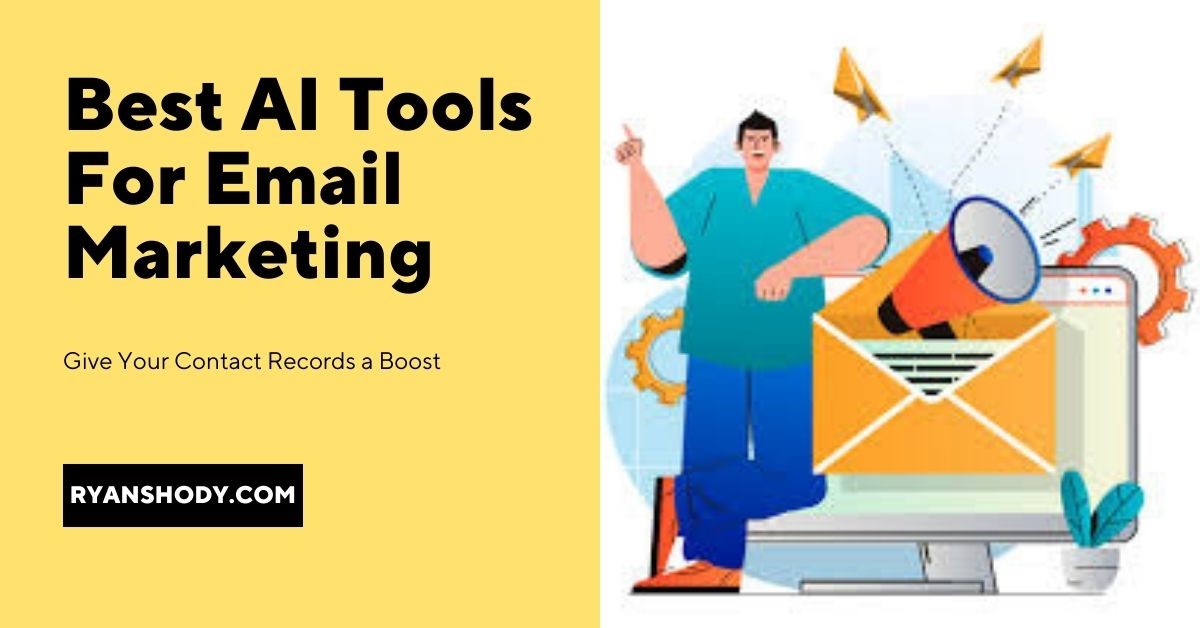In 2025, finding the Best AI Tools for Email Marketing is key to transforming your campaigns into highly personalized and engaging experiences. Artificial Intelligence (AI) is revolutionizing how we approach email marketing, making it easier to capture the attention of your audience.

Why Invest in AI Tools for Email Marketing?
Using the best AI tools for email marketing can make a big difference in how successful your campaigns are. Here’s why:
- Better Engagement: AI helps you understand what your audience likes, so you can send emails that they’re more likely to open and read.

- Personalization: AI can create emails that feel special and tailored for each person, even when you’re sending them to lots of people at once.
- Save Time: AI takes care of the repetitive tasks in email marketing, like deciding who should receive which email and when.

- Smarter Decisions: The best AI tools for email marketing give you insights into what’s working and what isn’t, helping you make better decisions for future campaigns.
Top Things to Think About Before Getting an AI Email Marketing Tool
When looking for the best AI tools for email marketing, here are some simple things to keep in mind:
- Budget: Know how much you can spend. Some tools might be expensive, but there are affordable options too.
- Your Business Size: Pick a tool that works well whether your business is big or small. It should be able to grow with you.
- What You Want to Achieve: Think about what you want to do with your emails. Do you want to make them more personal or send them out at the best time? Choose a tool that helps with your goals.
- Working with Other Software: Make sure the new AI tool works well with the software you already use.
- Easy to Use: Find a tool that’s easy to learn and use. This way, you can get started quickly and make the most of it.
- Safety and Rules: The tool should keep your data safe and follow email rules. This keeps you out of trouble.
Overview of the Best AI Tools for Email Marketing in 2025
Here’s a list of the seven tools mentioned, along with what they are best or known for:
- Optimail
- Best Known For: Automating email personalization and optimization through behavioral targeting.
- Phrasee
- Best Known For: Generating AI-powered email subject lines, body copy, and calls-to-action optimized for higher engagement.
- Mailchimp’s AI Assistant
- Best Known For: Integrating AI features to optimize campaigns and content, enhancing overall email marketing performance.
- Persado
- Best Known For: Using AI to create emotionally engaging content that increases open rates, clicks, and conversions.
- Seventh Sense
- Best Known For: Optimizing email send times and frequencies based on individual recipient behaviors to improve engagement.
- Boomerang for Gmail
- Best Known For: Offering AI-powered email scheduling, follow-up reminders, and response tracking, specifically for Gmail users.
- ActiveCampaign
- Best Known For: Combining email marketing, automation, sales automation, and CRM with AI capabilities for an all-in-one marketing platform.
1. Optimail
Optimail utilizes artificial intelligence to automate email personalization and optimization, focusing on behavioral targeting to increase engagement and conversions for affiliate marketers.
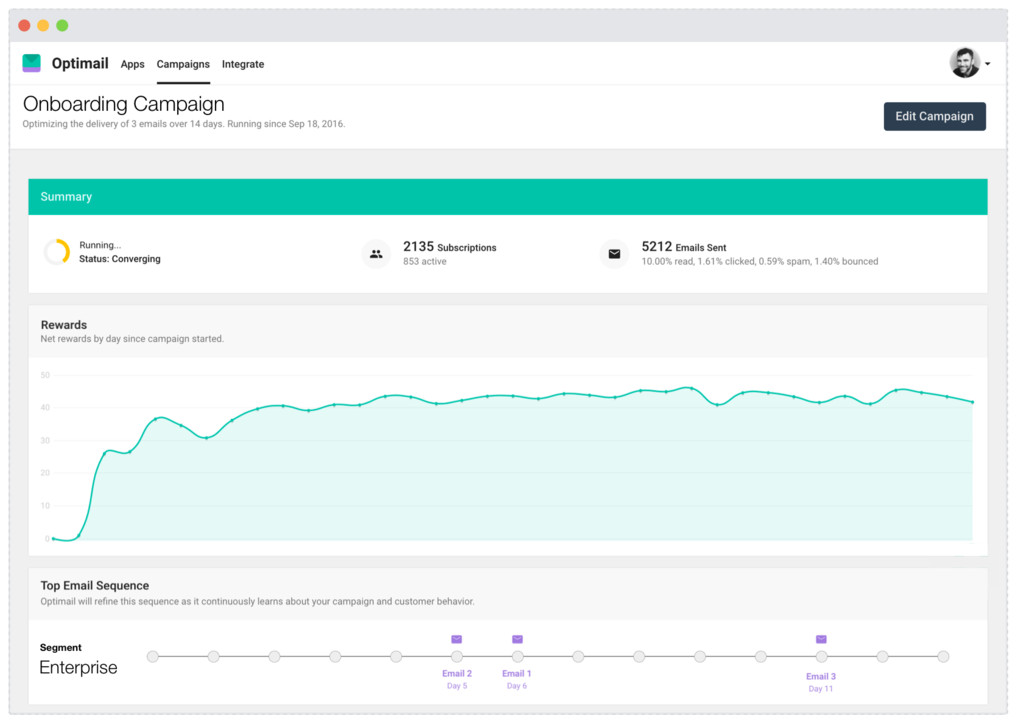
Ryan’s Advice: “Leverage Optimail’s AI to segment your audience based on their interactions and preferences, ensuring highly personalized email campaigns that drive affiliate revenue.”
Key Features to Look For:
- Automated behavioral targeting
- Personalization and optimization
- Advanced analytics and reporting
Pros and Cons:
- Pros: High customization of emails; robust analytics.
- Cons: Steeper learning curve for beginners.
Ease of Use and Support: Offers comprehensive support and documentation, but requires some learning time.
Real-User Reviews and Success Stories: Users report significant increases in open rates and affiliate sales.
Pricing and Subscription:
- Monthly plans starting from $25
- Custom plans for high-volume senders
2. Phrasee
Phrasee uses AI to generate email subject lines, body copy, and calls-to-action that are optimized for higher open rates and conversions.
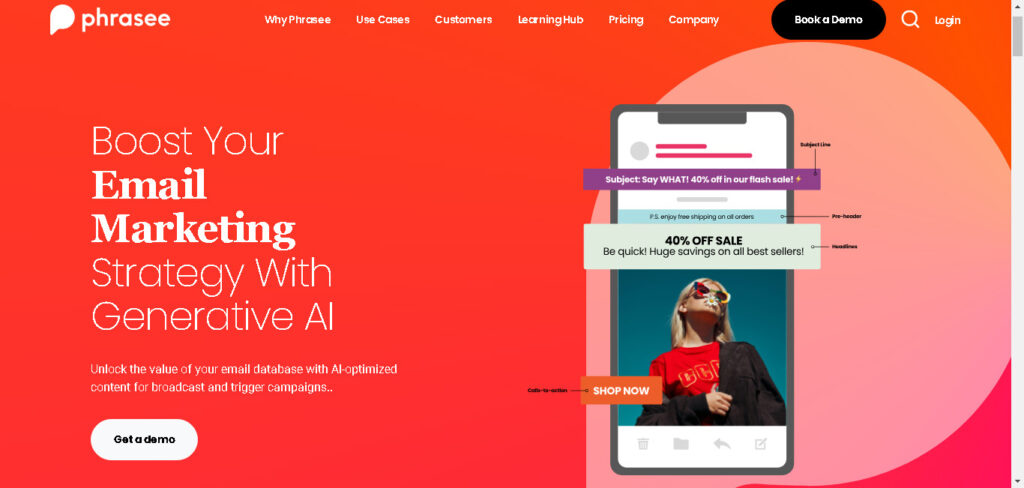
Ryan’s Advice: “Focus on testing different AI-generated content to find what resonates best with your audience, maximizing affiliate link clicks.”
Key Features to Look For:
- AI-generated subject lines and content
- Performance testing and optimization
- Integration with major email marketing platforms
Pros and Cons:
- Pros: Improves engagement rates; easy integration.
- Cons: Limited to English language.
Ease of Use and Support: User-friendly with excellent customer support and resources.
Real-User Reviews and Success Stories: Marketers praise its effectiveness in boosting campaign performance.
Pricing and Subscription:
- Pricing upon request
- Free trial available
3. Mailchimp’s AI Assistant
Mailchimp’s AI Assistant revolutionizes how marketers optimize their campaigns. As a leader among the Best AI Tools for Email Marketing, it provides actionable AI insights and recommendations, enhancing campaign performance and affiliate revenue streams.
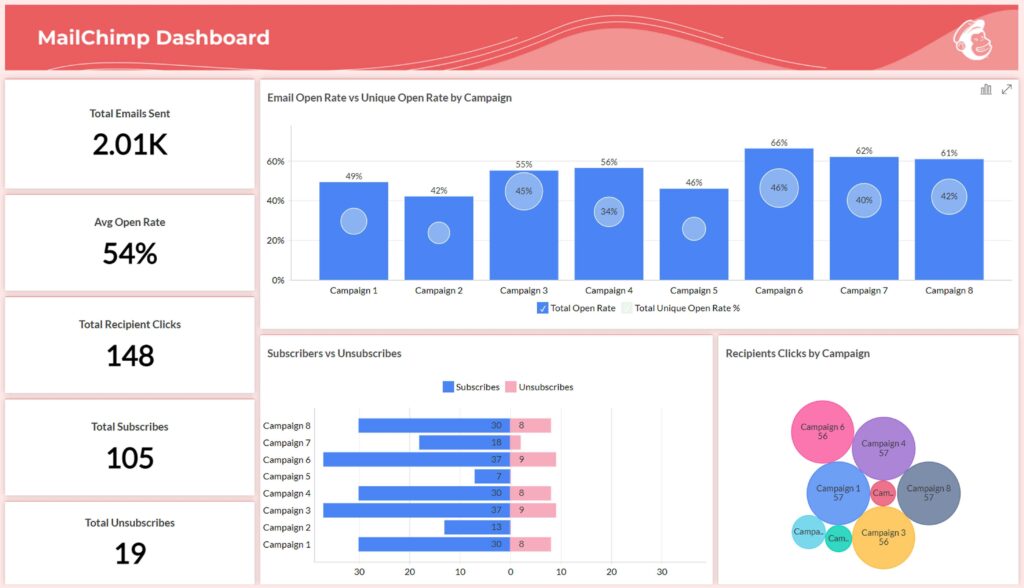
Ryan’s Advice: “Harness the power of Mailchimp’s AI to fine-tune your email strategies. Its predictive insights can significantly enhance the effectiveness of your affiliate campaigns.”
Key Features to Look For:
- Content optimization recommendations
- Predictive segmentation
- A/B testing automation
Pros and Cons:
- Pros: Extensive template library; intuitive design tools.
- Cons: Costs can escalate for large subscriber lists.
Ease of Use and Support: Renowned for its user-friendly interface and strong customer support.
Real-User Reviews and Success Stories: “Many small to medium-sized businesses have seen substantial growth, attributing their success to Mailchimp’s AI enhancements.”
Pricing and Subscription:
- Free tier available
- Paid plans start at $9.99/month
4. Persado
Persado employs advanced AI to craft emotionally resonant email content, setting a new standard for the Best AI Tools for Email Marketing. Its technology increases open rates, clicks, and conversions by appealing directly to the emotions of the audience.
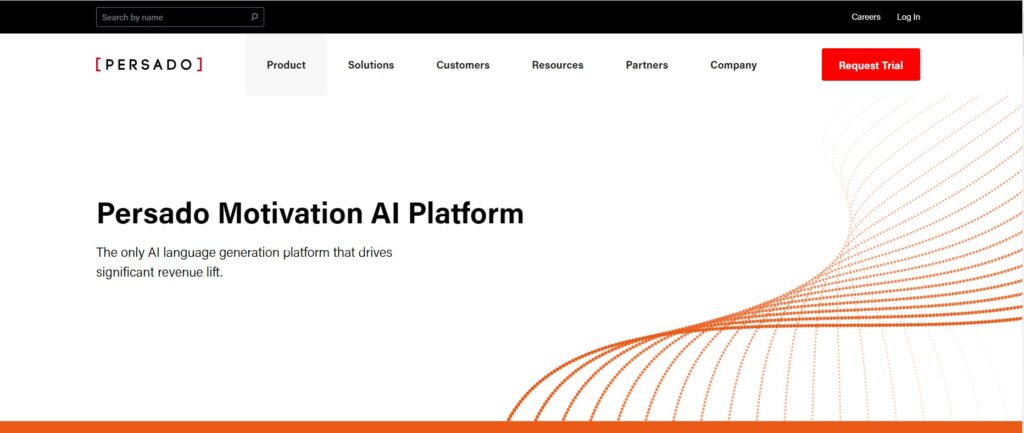
Ryan’s Advice: “Experiment with the variety of tones and messaging styles Persado offers. It’s a game-changer for tailoring content that resonates on a deeper level with your audience, potentially skyrocketing your affiliate sales.”
Key Features to Look For:
- Emotional intelligence content generation
- Language and sentiment analysis
- Campaign analytics
Pros and Cons:
- Pros: Breakthrough approach in content creation; comprehensive analytics.
- Cons: The premium price tag may be a consideration for some.
Ease of Use and Support: While Persado provides extensive support, new users may need time to fully grasp its capabilities.
Real-User Reviews and Success Stories: “Marketers often report a significant uptick in engagement metrics and ROI, thanks to Persado’s unique content generation approach.”
Pricing and Subscription:
- Custom pricing based on specific needs
5. Seventh Sense
Seventh Sense takes email marketing timing to a new level with its AI-driven optimization. As part of the Best AI Tools for Email Marketing, it adjusts sending times and frequencies based on individual recipient behaviors, drastically improving open rates and overall engagement.
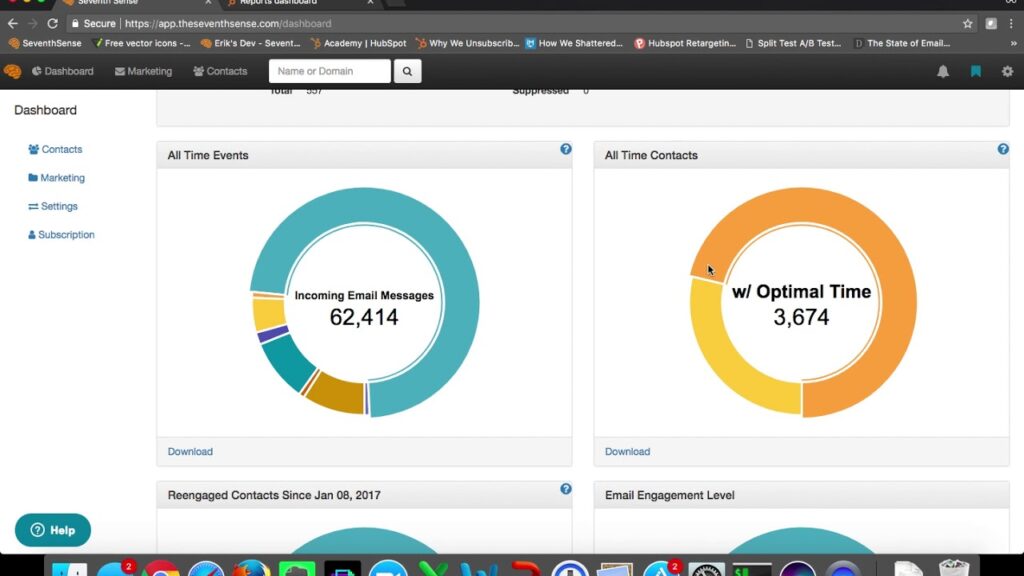
Ryan’s Advice: “Implement Seventh Sense to precisely schedule your affiliate email campaigns. Timing is everything, and with Seventh Sense, you ensure your emails arrive exactly when your audience is most receptive.”
Key Features to Look For:
- Send time optimization
- Frequency optimization
- Easy integration with popular email platforms
Pros and Cons:
- Pros: Customized send times lead to higher engagement; seamless integration with existing email tools.
- Cons: Setup requires integration efforts.
Ease of Use and Support: Designed to complement your current email platform, with support available to assist in optimization.
Real-User Reviews and Success Stories: “Users report a noticeable improvement in their email campaign’s performance metrics, attributing it to the precise timing enabled by Seventh Sense.”
Pricing and Subscription:
- Starts at $79/month
6. Boomerang for Gmail
Boomerang for Gmail emerges as a pivotal tool among the Best AI Tools for Email Marketing, offering unparalleled AI-powered email scheduling, follow-up reminders, and response tracking. It’s specifically designed for Gmail users seeking to streamline their affiliate email campaigns.
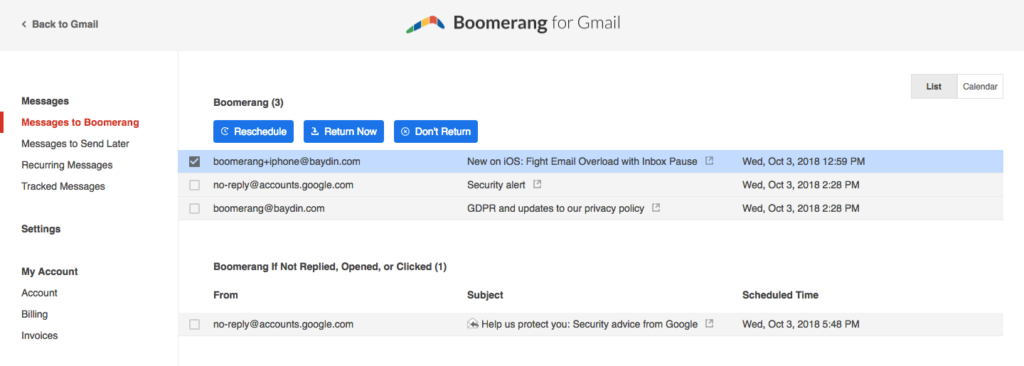
Ryan’s Advice: “Capitalize on Boomerang’s sophisticated AI features to enhance your management of affiliate email campaigns. Its ability to optimize engagement times and ensure timely follow-ups can significantly boost your marketing effectiveness.”
Key Features to Look For:
- AI-powered scheduling
- Response tracking
- Follow-up reminders
Pros and Cons:
- Pros: Effortless integration with Gmail; intuitive operation.
- Cons: Exclusively available for Gmail users, which may limit its applicability.
Ease of Use and Support: Renowned for its user-friendliness and direct integration into Gmail’s interface, Boomerang simplifies email campaign management.
Real-User Reviews and Success Stories: “The efficiency and ease of managing email campaigns and follow-ups with Boomerang have garnered positive feedback from a wide range of users.”
Pricing and Subscription:
- Free basic plan
- Premium plans start at $4.99/month
7. ActiveCampaign
ActiveCampaign distinguishes itself within the Best AI Tools for Email Marketing by offering a comprehensive solution that marries email marketing with automation, sales automation, and CRM, all powered by AI. This all-in-one platform is designed for marketers who require advanced segmentation and automation to craft highly targeted affiliate marketing campaigns.
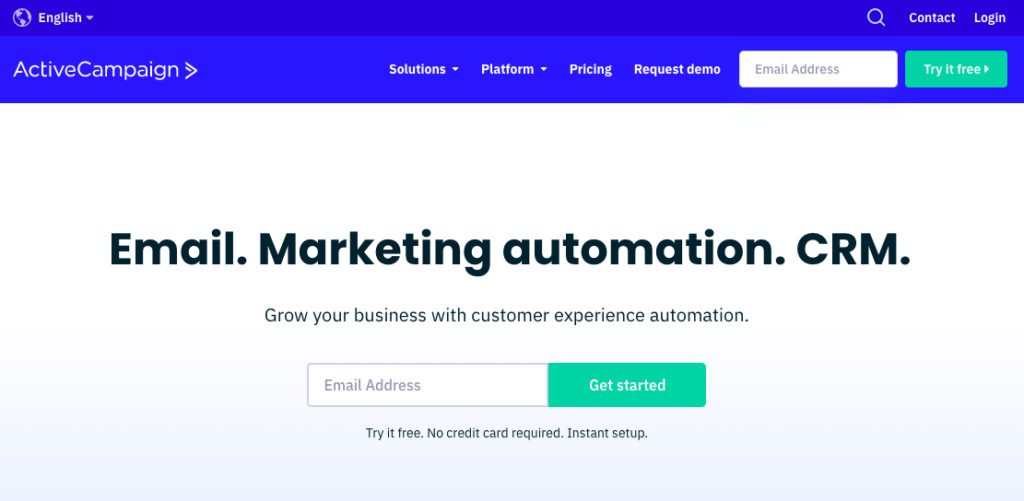
Ryan’s Advice: “Leverage ActiveCampaign’s advanced features to tailor your affiliate marketing efforts. Its segmentation and predictive sending capabilities are instrumental in achieving high engagement and conversion rates.”
Key Features to Look For:
- Advanced segmentation
- Predictive sending and content
- Comprehensive CRM and sales automation
Pros and Cons:
- Pros: Extensive feature set suitable for scaling operations.
- Cons: The platform’s complexity might be daunting for newcomers.
Ease of Use and Support: ActiveCampaign provides thorough tutorials and customer support, catering to users who have a foundational understanding of email marketing.
Real-User Reviews and Success Stories: “ActiveCampaign is frequently lauded for its robust automation features, which have been pivotal in enhancing sales and engagement for its users.”
Pricing and Subscription:
- Starts at $9/month for up to 500 contacts.
Making Your Decision:Best AI Tools for Email Marketing
Selecting from the Best AI Tools for Email Marketing in 2025 requires a clear understanding of your marketing goals and the unique strengths of each tool.
Here’s a concise summary to help you align your needs with the right tool:
- Optimail is best for marketers looking to leverage behavioral targeting for highly personalized email campaigns. Its strength lies in automating personalization and optimization to increase engagement and conversions.
- Phrasee excels in creating AI-generated email content that boosts open rates and conversions. It’s the go-to choice for marketers aiming to improve engagement through optimized subject lines and calls-to-action.
- Mailchimp’s AI Assistant offers a broad set of AI features within a familiar email marketing platform, making it ideal for businesses seeking to enhance their campaign performance with content optimization and predictive segmentation.
- Persado stands out for its ability to generate emotionally engaging content. If your goal is to connect with your audience on a deeper level, Persado’s emotional intelligence content generation is unmatched.
- Seventh Sense is perfect for optimizing send times and frequencies based on recipient behaviors. Choose this tool to ensure your emails land in inboxes at the most opportune moments.
- Boomerang for Gmail is specifically designed for Gmail users, offering AI-powered scheduling and reminders to keep your email campaigns on track.
- ActiveCampaign provides a comprehensive suite of features combining email marketing with CRM and sales automation. It’s best for businesses ready to use advanced segmentation and automation to scale their efforts.
Conclusion and Next Steps
Choosing the right AI tool from the Best AI Tools for Email Marketing can significantly enhance your strategy, leading to better engagement, higher conversions, and more effective campaigns. Each tool offers unique features tailored to different marketing needs, from content generation to send-time optimization
Now is the time to take the next step. Whether it’s signing up for a free trial or scheduling a demo, exploring these tools firsthand will provide valuable insights into how they can fit into your marketing strategy.
Don’t hesitate to reach out to the providers for more information or to see the tools in action.
FAQ Section: Best AI Tools for Email Marketing
Q1: What are AI tools for email marketing? A1: AI tools for email marketing use artificial intelligence to automate, personalize, and enhance email campaigns. They help in segmenting audiences, optimizing send times, creating personalized content, and analyzing campaign performance.
Q2: Why should I use AI in my email marketing strategy? A2: Using AI can improve engagement rates, increase conversions, and save time by automating repetitive tasks. It allows for more personalized communication with your audience, leading to better customer experiences.
Q3: Can small businesses benefit from AI email marketing tools? A3: Absolutely! Small businesses can see significant benefits from using AI tools, such as more targeted marketing, efficient use of resources, and improved ROI on email campaigns, even with limited marketing budgets.
Q4: Are AI email marketing tools expensive? A4: The cost varies depending on the features and capabilities of the tool. There are affordable options for small businesses, and many tools offer scalable pricing models that grow with your business needs.
Q5: How do I choose the right AI email marketing tool for my business? A5: Consider your marketing goals, budget, business size, and the specific features you need, such as personalization, automation, analytics, or integration capabilities. Look for tools that offer a free trial to test their functionality.

